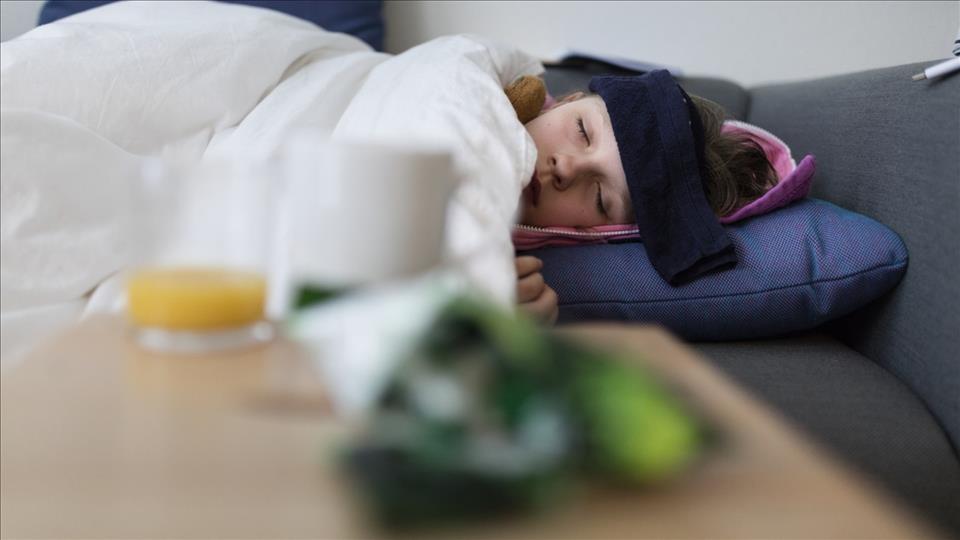
Atypical Pneumonia Making Post-Covid Comeback, Say Swiss Researchers
- Share
- Copy link
"From a scientific point of view, it was absolutely fascinating", Patrick Meyer Sauteur, from the University Children's Hospital in Zurich, told the Keystone-SDA news agency.
The measures taken during the Covid-19 pandemic also led to a decline in other pathogens, but all of them then rapidly re-appeared, with the notable exception of mycoplasma, explained the researcher. Only a few isolated outbreaks were reported, according to a study by the same team published in July.
The pause is now well and truly over, and we are back to pre-pandemic levels, with Switzerland even recording record figures. "The rise in infections in recent months is very impressive," said Sauteur.
+ After the Covid pandemic, more than one-third of Swiss report poor health
"We'll have to keep a close eye on how the situation develops," he says. After three years' absence, immunity in the population is weaker, which could result in more numerous and more serious infections. For the time being, however, this is not the case.
What's more, given the long absence of the bacterium, it's possible that medical staff no longer think about it, even when the corresponding symptoms are present, said the specialist. The resurgence of mycoplasmal infections was observed between April and September 2023, according to monitoring conducted at 44 sites in 24 countries.
Main cause of pneumonia in childrenAtypical pneumonia is caused by the bacterium Mycoplasma pneumoniae. Before Covid, it was the main cause of bacterial pneumonia in children.
+ Explainer: Should we be worried about the Covid-19 comeback?
M. pneumoniae is endemic worldwide, with regular outbreaks, for example in families, schools or military sites. The disease is most common in hot weather, in summer and early autumn.
It is transmitted by droplets from close contact. The disease is considered highly contagious. M. pneumoniae is a frequent cause of community-acquired pneumonia, mainly in children and adolescents, but also in adults.
To explain the prolonged absence of the bacterium, in July the authors cited the longer generation time (six hours, compared with 10-20 minutes for other conventional bacteria) and slower incubation (one to three weeks) of mycoplasmas.
Discovered in the 1940s, this micro-organism was long considered to be a virus, not least because of the difficulty of cultivating it. It can cause numerous complications, some of them serious, such as dermatological lesions and damage to the central nervous system. In recent years, the spread of antibiotic-resistant mutants has posed an additional challenge, particularly in Asia.
Send us your input
Do you have more questions about this story? Your contribution Our journalists will take your contribution on board for their coverage and may follow up with you via email. If you have questions, get in touch . Your contribution... How we workThis news story has been written and carefully fact-checked by an external editorial team. At SWI swissinfo we select the most relevant news for an international audience and use automatic translation tools such as DeepL to translate it into English. Providing you with automatically translated news gives us the time to write more in-depth articles. You can find them hereExternal link .
If you want to know more about how we work, have a look hereExternal link , and if you have feedback on this news story please write to External link .
End of insertion External Content Your subscription could not be saved. Please try again. Almost finished... We need to confirm your email address. To complete the subscription process, please click the link in the email we just sent you. Daily newsGet the most important news from Switzerland in your inbox.
Daily
EmailThe SBC Privacy Policy provides additional information on how your data is processed.
I consent to the use of my data for the SWI swissinfo newsletter.
Articles in this story
- Do you have more questions about this story?
In compliance with the JTI standards
More: SWI swissinfo certified by the Journalism Trust Initiative
You can find an overview of ongoing debates with our journalists here . Please join us!
If you want to start a conversation about a topic raised in this article or want to report factual errors, email us at ... .

Legal Disclaimer:
MENAFN provides the
information “as is” without warranty of any kind. We do not accept
any responsibility or liability for the accuracy, content, images,
videos, licenses, completeness, legality, or reliability of the information
contained in this article. If you have any complaints or copyright
issues related to this article, kindly contact the provider above.























Comments
No comment